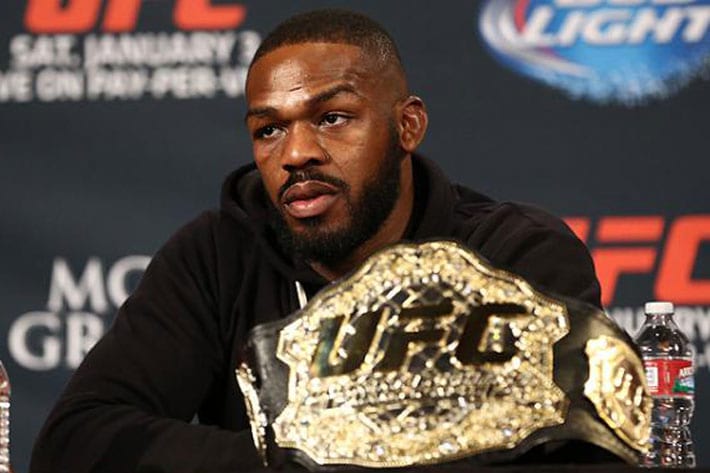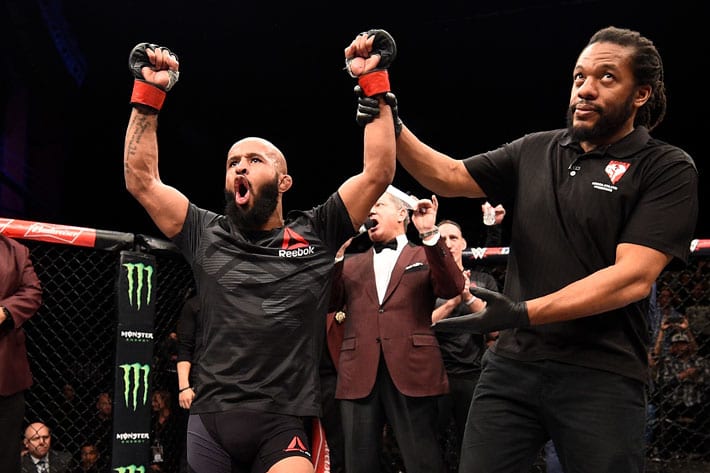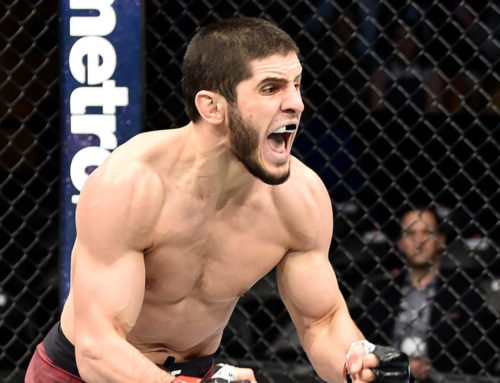A fight is a great way to settle an argument. Always has been, always will be. A solution centuries-old, the very basis of combat sports, men and women fight for a whole host of reasons: out of hate; out of love; to settle differences; to prove toughness; to establish superiority; to make money; to win titles. Whatever the reason, there’s a beautiful sense of finality to a fight. It will answer questions. It will reveal the truth. It will tell us who is number one.
Yet this route to resolution, while applicable to two fighters in the same weight class, ceases to exist in the pound-for-pound debate. Because it comprises fighters from different weight classes, they will never be able to fight one another to settle the argument, which means we will never definitively know the identity of the top dog. All we can do is speculate.
Everyone has an opinion. But here’s the truth: there’s no right or wrong answer. Fighters stake their claim by beating contenders and champions in their respective divisions, eventually becoming number one, while we, witnesses to the rise, take it upon ourselves to imagine how said fighter would fare against champions in divisions above and below. It’s a bizarre concept, this whole pound-for-pound thing. There is truly no way of telling, yet in a sport that prides itself on finality – the knockout punch, the tapout, the fight itself – a pound-for-pound debate is one intangible which allows us to let our imaginations run wild. And, for that reason, it’s imperative.
There’s one thing we can at least all agree on: the top three fighters in the UFC’s official rankings – Demetrious Johnson, Conor McGregor and Daniel Cormier – deserve their spots, and, were it not for his time away from the Octagon, Jon Jones would surely join them. But now, on the eve of the Cormier vs. Jones rematch at UFC 214, let’s look at how these fighters’ credentials stack up and try, if it’s even possible, to determine who might be narrowly ahead at this point…
How effective is your ass-kicking ability?
In theory, a pound-for-pound discussion throws up fantasy match-ups between fighters from different weight classes and asks us to assess their abilities, suspend our disbelief and imagine these two fighters to be the same height and weight and to do battle in a galaxy far, far away. We then ask ourselves: all being equal, who would win?
Chances are, though, every fighter included in the pound-for-pound conversation has an inordinate amount of ability. It would be tough for anyone to reach the summit of their division and for this to not be the case. Demetrious Johnson, for instance, seems as well-rounded as any mixed martial artist walking the planet today, Conor McGregor is blessed with striking that colors him almost superhuman and Jon Jones might be the most talented fighter to call a cage his second home. What’s more, no champion wrestles better than Daniel Cormier, no champion boxes better than Cody Garbrandt and no champion attacks with vicious intent quite like Joanna Jedrzejczyk.
Therein lies the problem. In a sport as multi-faceted as mixed martial arts, which skill wins out? Does the striking of one fighter trump the grappling of another? Is Fighter A more skillful than Fighter B? Would their skills translate if they were 50lb heavier or lighter? Is there even any way of knowing?

Who did you beat? What did you win?
The big one. This is typically what separates the wheat from the chaff, the men from the boys and the pound-for-pounders from the mere champions and contenders. This is a fighter’s CV. It’s their body of work, their portfolio. It’s what will ultimately define them. Ability and potential are subjective, yet the achievements of a fighter are the cold, hard facts, the evidence and very foundation of their case.
Within this category, however, there needs to be a sub category, something along the lines of Competition. This way we can add context. Without it, we’re liable to rate the achievements of a flyweight the way we would the achievements of a heavyweight or the achievements of a middleweight the way we would those of a bantamweight. And that’s wrong. It’s wrong because weight divisions boast differing levels of competition. Some contain a murderer’s row of contenders, while others are somewhat thin on the ground in comparison. It is perhaps unfair, therefore, to compare the achievements of a man who has survived murderer’s row and come out on top with the achievements of a man who has exhibited dominance over a weaker batch of challengers.
Jon Jones, in case we forget, has conquered Daniel Cormier, Alexander Gustafsson, Vitor Belfort, Lyoto Machida, Quinton ‘Rampage’ Jackson, Rashad Evans and Mauricio ‘Shogun’ Rua. Long story short, it doesn’t get much better than that. Big names, world-class fighters, some former champions. All beaten out of sight. Demetrious Johnson, meanwhile, has a similar set of stats, even more title defences, yet lacks the equivalent signature wins. He has the scalps of John Dodson and Joseph Benavidez, as well as some other quality if underrated flyweights, but nothing on his record snaps and crackles quite like the contents of Jones’ resume.

Have you got staying power?
Paying one’s dues is an underrated element of both a champion’s title reign and also their claim to a place in the upper echelons of the pound-for-pound pecking order. After all, MMA is awash with one-hit wonders, men and women whose tenure at the top was fruitful and memorable but ultimately short-lived. Fights are won in an instant, stars are made just as quickly. Yet topping a pound-for-pound list requires more than just fleeting glory and fame. It should be a mark of a fighter’s successes, plural, not a knee-jerk reaction to a breakout night.
Demetrious Johnson is one man who has unquestionably paid his dues. The former UFC bantamweight title challenger dropped to flyweight and lifted the UFC belt in 2012. Five years later, he has equaled former pound-for-pound king Anderson Silva’s record of 10 successful UFC title defenses and all but cleaned out a weight class. Questions can be asked of the standard of his competition, but there can be no doubting Demetrious’ dominance. Nor should his ability to keep performing time and time again, when matched with world-class fighters, be overlooked, especially in a sport prone to throwing up dangerous challengers and banana skins in equal measure. ‘Mighty Mouse’ has, to his credit, managed to stay in the zone when others have found themselves either distracted or defeated.
That said, longevity doesn’t necessarily have to just be about racking up numbers, beating countless contenders and remaining on top. There is value in changing things up and taking risks, and fighters who establish themselves in not one but two weight classes deserve special mention here. The impact and influence of Daniel Cormier and Conor McGregor, for example, has been felt far and wide. Light-heavyweights and heavyweights remember time spent in Cormier’s esteemed company, while the featherweight and lightweight belts on McGregor’s mantle show he reached the pinnacle of two of the sport’s most talent-stacked divisions. It’s called leaving your mark.

What have you done for me lately?
According to the old adage, you’re only as good as your last fight. If that is indeed the case it must surely be reflected in the world of pound-for-pound. Apologies, then, to Jon ‘Bones’ Jones, a former UFC light-heavyweight champion who, despite limitless potential, has been far less sure of himself in his civilian life, been MIA from MMA since April 2016, and has subsequently relinquished his right to be called pound-for-pound numero uno. He has lost his old belt, dropped from the 205lb rankings and had to watch old rival Daniel Cormier – himself now a pound-for-pound contender – squeeze into his old throne. None of this reflects well on Jones, nor does it strengthen his case in the pound-for-pound debate circa 2017.
The same could be said for Conor McGregor, of course. He, like Jones, is super talented, seemingly without equal in at least two weight divisions, yet, at this point, also carries the distracted look of a semi-retired mixed martial artist. One day a UFC lightweight champion, the next a boxer in pursuit of Floyd Mayweather, we must keep in mind that McGregor, for all his brilliance, hasn’t competed so far in 2017 and is yet to have a single successful title defense. He’s testing the patience of rivals and fans by holding up and complicating weight divisions.
As Jones and McGregor drift further away, either through choice or circumstance, fighters hungry for a title that doesn’t actually exist – that of pound-for-pound number one – make up ground.

*** This feature appears in the August 2017 issue of Fighters Only magazine ***






